Fritextsökning
Artiklar per år
Innehållstyper
-

Bought a tablet factory – and built his own empire
In 1995, Thomas Eldered was CEO of one of Pharmacia’s factories in the Stockholm area when the Swedish pharmaceutical giant, after a takeover, decided to move its production abroad. 34-year-old Thomas was facing an imminent risk of losing his job. However, instead, it actually turned out to be the starting point for one of the biggest success stories in Swedish life science.
-

Genes from Neanderthals can affect the correct drug dosage
A fifth of all Europeans carry gene variants inherited from Neanderthals, which cause certain drugs to break down more slowly. This may have implications for the drug doses they should take.
-
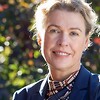
Anna Törner: Kalashnikovs in a new guise
Thanks to resisting European regulatory authorities, Europe has been spared the opioid epidemic. In the 1960s, the situation was the opposite as the American pharmaceutical authority, the Food and Drug Administration (FDA), refused to approve thalidomide (Neurosedyn), writes Anna Törner in a column.
-

Sweden is heavily criticised for not ordering Covid vaccine
Valneva and the EU Commission have entered into an agreement for 1.25 million doses of the company’s Covid vaccine, but Sweden has not placed an order.
-
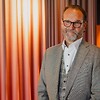
BioVentureHub CEO: “Companies with a high degree of interaction achieve greater success”
For the first time since its inception, AstraZeneca’s BioVentureHub can now recruit new companies, as some of its tenants have grown significantly and are leaving the hub. This is the message from the biohub’s CEO Magnus Björsne in an interview, in which he also highlights a study that points out that companies with a high degree of interaction with other companies achieve greater success.
-

Collaboration for a simpler production of gene therapies launched
A collaboration between universities and companies aims at providing better production methods for the development of gene therapies. The initiative is led by Johan Rockberg, Professor at KTH.
-
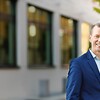
Björn Arvidsson: “We need robust and recognized ecosystems for continued competitiveness”
“We have idea carriers and excellent innovation opportunities, and now we must invest in creating ecosystems that provide them with even better growth opportunities,” Björn Arvidsson writes in a column.
-
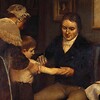
The first vaccine derived from cowpox
The British rural doctor could not forget the words of the peasant girl. Could that really be true? A couple of decades later, on 14 May 1796, he performed the world’s first smallpox vaccination, and a medical breakthrough had occurred.
-
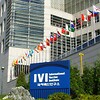
Now it’s settled: The International Vaccine Institute will be located in Stockholm
The International Vaccine Institute, IVI, is establishing itself outside South Korea for the first time. Last week, the Swedish Parliament ratified the agreement, which means that a branch of the institute will be located in Stockholm.
-

No demand for new Covid vaccine – “It will probably be discarded”
So far, just under 6 000 doses of the Covid vaccine from Novavax have been used in Sweden, leaving over 1.4 million doses in stock. “They will probably be discarded due to lack of demand in Sweden as well as globally,” says Sweden’s National Vaccine Coordinator Richard Bergström to Life Science Sweden.
-

Hello Angelica Loskog!
Life Science Sweden would like to know more about Angelica Loskog and interviews her about her life as a researcher.
-

Investments worth 40 billion in the Öresund region – “A huge investment wave”
A new report reveals that medical companies in the Oresund region are investing like never before.
-
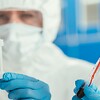
New rules for diagnostic products, but who will certify them? “An extreme shortage area”
In less than two weeks, new and stricter EU rules will enter into force for thousands of products used in important diagnoses of, among other things, cancer and Covid-19. However, not one single institute in the entire Nordic region is able to certify the diagnostics companies’ products according to the new regulations. “In the end, it risks affecting patients,” says Anna Lefèvre Skjöldebrand, CEO of Swedish Medtech.
-

Paolo Macchiarini in court – “The sole intent was to cure”
Paolo Macchiarini’s surgical procedure was illegal, life-threatening and caused severe and prolonged suffering to patients the prosecution claimed when the trial against the Italian surgeon began on Wednesday last week.
-
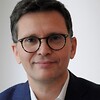
We will now publish more news in English – and offer yet another newsletter
Starting next week, Life Science Sweden will begin offering a newsletter entirely in English.
-
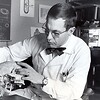
When carelessness, forgetfulness and coincidence become the researcher’s best friend
Forgetfulness, coincidence and a stroke of luck hardly make up a fruitful method of serious research. Or do they? Actually, a number of important medical advances have come about thanks to completely random incidents and the open-mindedness of scientists who were ready to think outside the box.
-

This is how Anette Steenberg will put Medicon Valley on the world map
Anette Steenberg has been CEO of the Swedish-Danish life science cluster Medicon Valley Alliance since 1 November last year. Life Science Sweden called her to ask about her visions and the challenges of merging the worlds of Swedish and Danish life science.
-

Björn Ursing: Physicians new role in AI driven healthcare
”AI could be the key we need for tomorrow’s healthcare, but it is not a stand-alone tool”, writes Björn Ursing in a column about how the role for physicians changes in the era of AI.
-
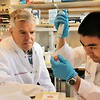
Elicera develops CAR-T against solid tumours – may become the first in the world
Today, there are five EU-approved CAR-T therapies, all focused on different types of blood cancer, but no one has yet succeeded in making the method work against solid tumours. At Gothenburg-based Elicera, they are working relentlessly to succeed in that field as well. “It is the largest field, and the potential is enormous,” says the company’s CEO Jamal El-Mosleh.
-
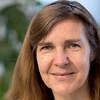
CAR-T therapies give continued hope: “Almost half of the patients have become disease-free”
When the first CAR-T therapies appeared, hopes were raised for the effective treatment for critically ill cancer patients. After a somewhat sluggish start, about 90 patients in Sweden have now been treated with this method. “Almost half of them have become disease-free, at least of those treated with Yescarta, which are the ones I know best,” says Gunilla Enblad, Chairman of the national working group for CAR-T treatment.
-
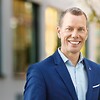
Björn Arvidsson: ”We need to change perspective”
If you say “life science” to a person on the street and ask them to explain what it is, you will probably get no good answer. The same question to your network will generate as many versions as the people you ask. Most likely, we will miss many opportunities with our lack of communication, writes Björn Arvidsson in a column.
-
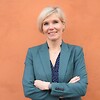
Marie Gårdmark: Finally, it’s time for a revision of the EU pharma legislation
A challenge for the EU Commission is to deliver a new framework that will also take care of another “pillar” of the pharmaceutical strategy, namely, to ensure that new medicines will be available for all citizens in Europe, writes Marie Gårdmark in a column.
-

Study: An objective diagnosis of constant tinnitus may be possible
A new method that measures brain activity during sound stimulation can make it possible to objectively diagnose and identify people who suffer from constant tinnitus, which was demonstrated in a study made by researchers at the Karolinska Institute.
-

“Together Stockholm-Uppsala and Medicon Valley can make Scandinavia a leading life science region”
“Denmark, Sweden, Norway and Finland all have national life science strategies, but the Swedish strategy is the only one explicitly emphasizing the Nordic dimension. But what if the leading life science nations, Denmark and Sweden, joined forces, took